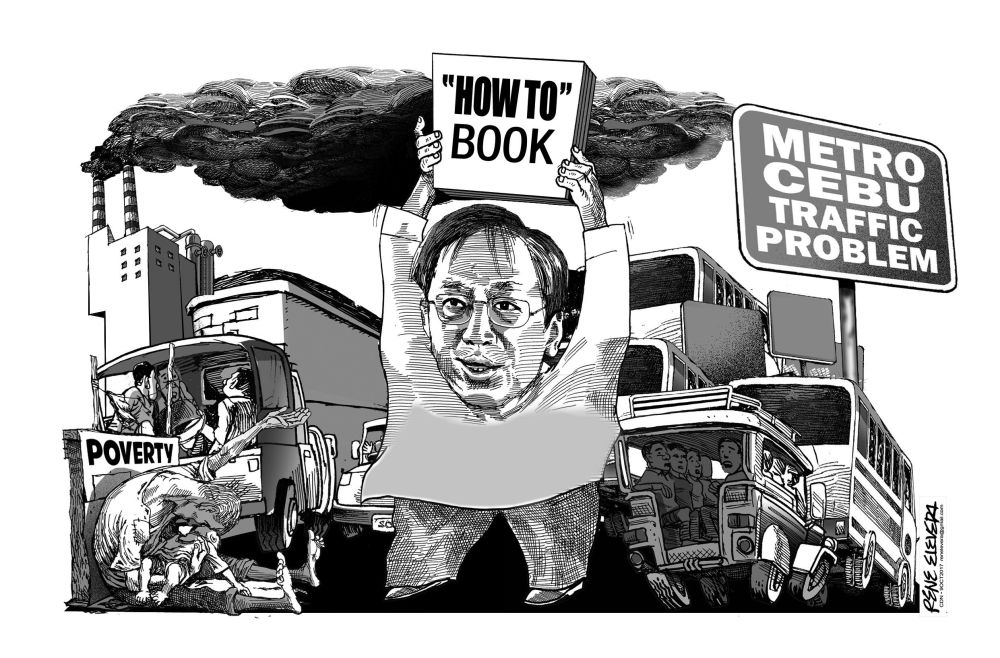
The mad dash to progress evinced by Metro Cebu’s shrinking roads makes us wonder how genuine is our concern for one another as commuters, pedestrians and motorists.
Anyone who takes public transport to work each morning and to go home every night knows how stressful these times of day have become.
Note the plethora of vehicles with harried drivers that compete for space in our metropolis’ thoroughfares especially in rush hours.
We have buses, jeepneys, vans for hire, cabs, private cars, motor and pedal-powered tricycles, motorbikes, bicycles and horse carriages as well as cars and motorbikes shared through mobile applications.
Poor infrastructure like the busted traffic lights at the junction of F. Llamas and Tres de Abril streets in Cebu City’s south district and ill-timed projects such as the tunnel work on N. Bacalso Avenue right in the middle of the rainy season worsen agony on our roads.
So do poorly managed festival sites like the sidewalks of Barangay Pardo where booths and customers spilled onto the avenue on fiesta period and delayed the homecoming of residents to the south.
In the face of street chaos, a Filipino, more often than not, becomes convinced that the only way to fare better is to buy a car.
But more vehicles lead to worse traffic snarls. As the Magsaysay laureate and lawyer Antonio Oposa Jr. observed, our race to individual mobility has resulted in collective immobility.
It is time to reflect once more on how we can implement road sharing as conceived by Oposa and other environment advocates.
In this scheme, not only is priority given to efficient means of mass transportation. Lanes are also allotted exclusively for pedestrians, bikers, and certain vehicles, which have to be driven without unjustified overtaking.
Before it can succeed, a road sharing scheme demands change of heart on the part of road users. Individual drivers, passengers and pedestrians must keep in mind that they are not the only ones who need to go somewhere.
Only then will each stop behaving as if he must get ahead on the road to everyone else’s grief. Only then will the culture of overtaking and cutting be replaced by a culture of road courtesy and giving way.
Agencies like Cebu City’s traffic office can do little without popular cooperation. But working together has been shown to be effective as in Pasay City in Metro Manila, a world traffic capital, where more and more roads are devoted to road sharing.
Let us progress in the way we use our roads. The alternative is to stress out one another there every day for the rest of our days.

